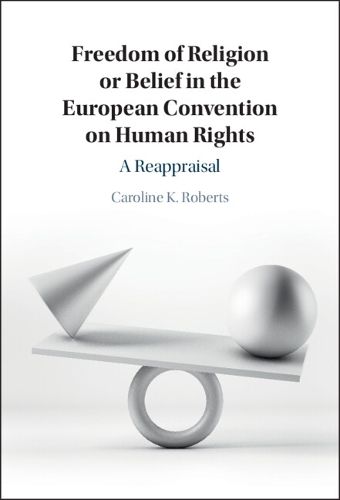Readings Newsletter
Become a Readings Member to make your shopping experience even easier.
Sign in or sign up for free!
You’re not far away from qualifying for FREE standard shipping within Australia
You’ve qualified for FREE standard shipping within Australia
The cart is loading…






The right to freedom of thought, conscience and religion in Article 9 of the European Convention on Human Rights (ECHR) has become increasingly significant and contested. Through an examination of ECHR Article 9, its drafting history, and the related jurisprudence of the European Court of Human Rights (ECtHR), Caroline K. Roberts challenges the classic approach to this right in the literature. Roberts argues that claims that there is, or should be, a clear binary and hierarchical distinction between the absolutely protected internal realm and the qualified external realm in this right are not founded textually or jurisprudentially. Rather, the primary materials suggest that the internal and external aspects are deeply interrelated, and this is reflected in the ECtHR's nuanced and holistic approach to ECHR Article 9 protection. This comprehensive, rigorous and up-to-date reappraisal of ECHR Article 9 and the related ECtHR jurisprudence will be essential reading for academics and practitioners.
$9.00 standard shipping within Australia
FREE standard shipping within Australia for orders over $100.00
Express & International shipping calculated at checkout
The right to freedom of thought, conscience and religion in Article 9 of the European Convention on Human Rights (ECHR) has become increasingly significant and contested. Through an examination of ECHR Article 9, its drafting history, and the related jurisprudence of the European Court of Human Rights (ECtHR), Caroline K. Roberts challenges the classic approach to this right in the literature. Roberts argues that claims that there is, or should be, a clear binary and hierarchical distinction between the absolutely protected internal realm and the qualified external realm in this right are not founded textually or jurisprudentially. Rather, the primary materials suggest that the internal and external aspects are deeply interrelated, and this is reflected in the ECtHR's nuanced and holistic approach to ECHR Article 9 protection. This comprehensive, rigorous and up-to-date reappraisal of ECHR Article 9 and the related ECtHR jurisprudence will be essential reading for academics and practitioners.